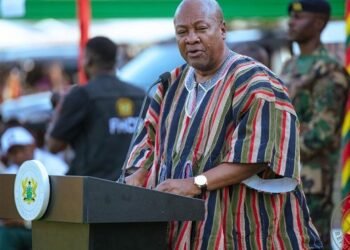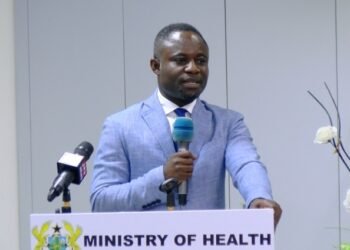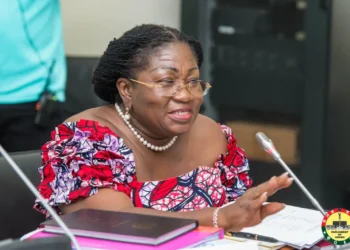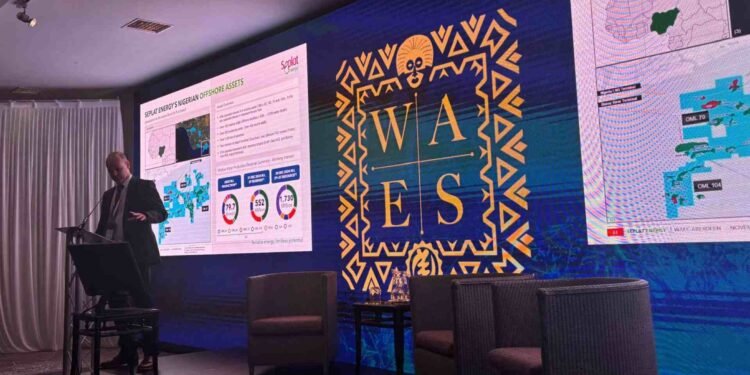Bright Simons, Vice President of IMANI Africa, has argued that Ghana’s fight against illegal mining, known as galamsey, has been misdiagnosed for far too long.
In his view, the continued framing of the menace as merely a law enforcement failure ignores the deeper social, cultural, and economic dimensions that sustain the practice in many communities across the country.
“The galamsey fight has been failing for long,” he said, stressing that the state’s reliance on police and military deployments is ill-suited to address the entrenched roots of the problem.
Simons drew sharp contrasts between galamsey and other crimes such as armed robbery. He explained that while robbery is universally condemned and policed without hesitation, galamsey sits in a different category because of its long historical association with local economies.
“Some harmful practices engaged in by large groups of people are often accepted and even encouraged by communities at the local level,” he observed.

According to him, records dating as far back as the 17th century show that galamsey has existed as an economic activity in Ghanaian communities. This legacy has created a form of social tolerance for the practice, making it more resistant to eradication through the blunt force of law enforcement alone.
To illustrate the point, Simons pointed to Ghana’s widespread outdoor traditional markets. He noted that while these markets remain central to food distribution, they fall short of international food safety standards such as those outlined in the Codex Alimentarius of the FAO and WHO.
“Research points to massive health consequences from the way food is handled and sold in various Ghanaian markets, abattoirs, and street vending sites”
Bright Simons, Vice President of IMANI Africa
Despite the well-documented hazards, there is little appetite to send police or soldiers into markets to enforce compliance. Instead, society has developed a tolerance for these lapses, normalising practices that pose clear risks. Simons argued that this same cultural tolerance explains why many rural communities are less alarmed by the environmental degradation caused by galamsey than policymakers and urban populations in Accra.

Limited Education and Policy Challenge
The IMANI Vice President also dismissed the notion that public education campaigns alone could resolve the issue.
While such campaigns may succeed against practices like female genital mutilation, he noted that they are less effective against entrenched activities with perceived benefits, such as prostitution or galamsey.
“I am not making excuses for galamsey. I am just trying to get you to understand why law enforcement is failing,” he remarked, highlighting that communities often acknowledge the harmful effects but still persist in the practice because of the economic benefits it brings.
For Simons, the way forward lies in a new policy approach that embeds enforcement and education within local community structures. “[They] can make a big difference, but they must be restructured for local and community delivery,” he said, emphasising that without local buy-in, the state’s fight against galamsey would remain futile.

However, he criticised the government’s current “community mining” policy, arguing that it is neither profitable enough for participants nor environmentally sustainable. Without redesign, he warned, such initiatives would fail to displace galamsey as the dominant livelihood option in mining communities.
Simons concluded by stressing the “katanomic gap” between politics and policy, which he described as the biggest hindrance to Ghana’s progress in tackling galamsey and similar challenges. For him, political commitments often remain on paper, with little translation into workable policy measures that can survive in the real world.
His analysis underscores the need for Ghana’s leaders to rethink the approach to illegal mining, moving beyond the narrow reliance on soldiers and police and toward policies that recognise the historical, social, and economic realities underpinning galamsey.
READ ALSO: Solar Energy Most Economically Viable for Nigeria’s Power Mix – REA Boss























